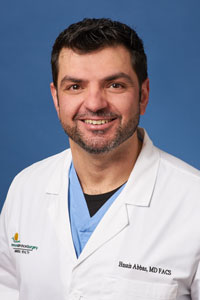
Is weight loss surgery right for you?
Weight loss surgery, also known as bariatric surgery, is a medical procedure that helps individuals who are severely overweight or obese to lose weight. Weight loss surgery is not a quick fix solution, but it can provide numerous benefits for individuals struggling with obesity.
There are several types of weight loss surgeries, including gastric bypass, gastric sleeve, and biliopancreatic diversion with duodenal switch (commonly known as the switch or DS).
Why surgery?
One of the primary benefits of weight loss surgery is significant and sustained weight loss. Studies have shown that individuals who undergo weight loss surgery can lose a substantial amount of weight, often reaching their target weight within a year or two after the procedure.
This weight loss is crucial for individuals who are at risk of developing obesity-related health conditions such as diabetes, heart disease, and high blood pressure. By shedding excess weight, patients can reduce their risk of these chronic diseases and improve their overall health.
Bariatric surgery significantly changes several hormones involved in regulating hunger, satiety and blood sugar control. For example, gastric bypass surgery has been shown to effectively resolve or improve type 2 diabetes in many patients. This improvement in health conditions can lead to a reduced need for medication and a decreased risk of complications associated with these conditions.
Mental Health Benefits
In addition to physical health benefits, weight loss surgery can have a positive impact on mental health. Obesity often takes a toll on an individual's self-esteem and body image. Many individuals who are obese struggle with feelings of shame, guilt, and depression.
Weight loss surgery can help individuals regain their self-confidence and improve their mental well-being. As they lose weight and see improvements in their physical health, patients often experience a boost in self-esteem and a more positive outlook on life.
Obesity limits one’s mobility and ability to engage in physical activities. After weight loss surgery, patients often experience increased energy levels and improved physical fitness, allowing them to participate in activities they were previously unable to enjoy. This enhanced quality of life can lead to increased social interactions, improved relationships, and a greater sense of fulfillment.
My patients frequently tell us of the new adventures they have been on which were inaccessible to them prior to surgery – getting on a ride at Disney world, for example.
Financial Benefits
Weight loss surgery also has financial benefits. Obesity-related health conditions can be costly to manage and treat. By undergoing weight loss surgery and achieving significant weight loss, individuals can reduce their long-term healthcare costs. They may require fewer medications, doctor visits, and hospitalizations, leading to substantial savings. Additionally, weight loss surgery can improve work productivity and reduce absenteeism, resulting in financial benefits for both individuals and employers.
What are the risks?
Weight loss surgery is not without risks and potential complications. Like any surgical procedure, there are risks of infection, bleeding, and adverse reactions to anesthesia. Additionally, weight loss surgery requires a commitment to lifestyle changes, including a healthy diet and regular exercise, in order to maintain long-term weight loss. Individuals considering weight loss surgery should thoroughly research and consult with medical professionals to determine if it is the right option for them.
For more information about weight loss surgery at Memorial Satilla

About the Author: Dr. Abbas is a board-certified surgeon and fully trained in minimally invasive surgery and in the designated MBSQIP center. After his surgical residency at St. Mary's, a Yale university affiliated hospital, Dr. Abbas completed a fellowship in Minimally Invasive Gastroesophageal and Bariatric surgery at the University of Florida, Gainesville. Dr. Abbas' expertise extends to a wide array of gastroesophageal disorders, anti-reflux surgery, complex hernia repairs, endocrine, oncology and bariatric procedures.
$webqFacilityNumber
Need a Physician?